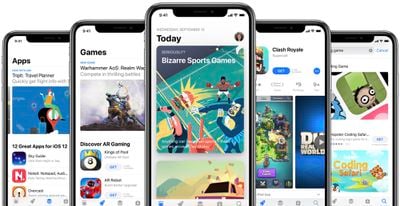As part of an ongoing antitrust inquiry into Apple's App Store policies, U.S. antitrust regulators are looking into the 30 percent cut that Apple takes from in-app subscriptions, reports Bloomberg.

Government lawyers have been meeting with developers over the course of the last several months, and in meetings as recent as last week, developers have been asked questions about Apple's subscription rules.
Apple requires developers to use its App Store payment system for subscriptions, an issue that was in the spotlight recently when email app "Hey" was rejected for requiring users to purchase a subscription on its website because the app's developers did not want to pay Apple's subscription fees. The problem was ultimately resolved, but it led to multiple developer reports about unfair treatment from Apple.
Developers have been questioned by government officials about the App Store review process, and at least one developer was asked if Apple lowering its 30 percent cut would solve concerns, but the developer in question told the DoJ that the problem is not the commission, but the fact that Apple doesn't allow for alternate payment systems.
Representative David Cicilline, Chairman of the U.S, House Subcommittee on Antitrust that's looking into Apple's App Store policies, earlier this month called Apple's fees "highway robbery" and said that Apple's rules are unfair to developers and hurt consumers.
The U.S. investigation into Apple's App Store practices is in the early stages, according to Bloomberg, with the U.S. Justice Department focusing most of its resources on a separate investigation into Google's dominance in digital advertising. The case against Apple has been described as "serious," however, but the inquiry is ongoing and no decisions have been made.
At the conclusion of the investigation, the antitrust committee will generate a report with recommendations on legislative action.
Apple is also facing a European antitrust complaint over its 30 percent cut on ebooks in the App Store, brought about by Rakuten's Kobo subsidiary. Kobo said that Apple's rate is anti-competitive because of Apple's own Books service, which does not have to pay the same fee.























